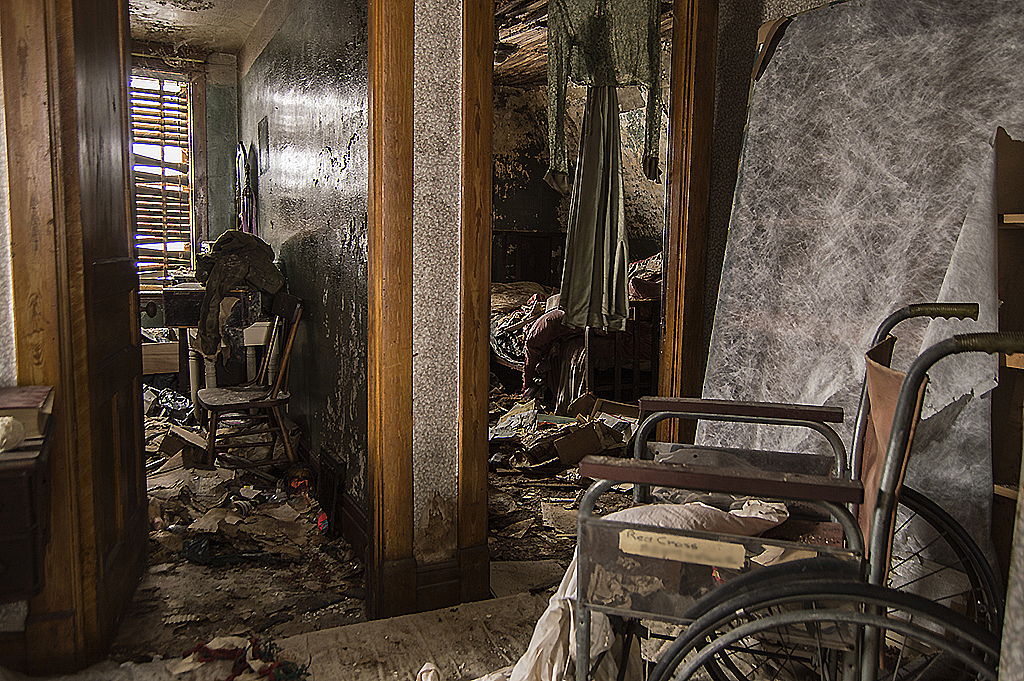Choosing a single Gwenael Piaser photo to feature is a painful exercise. So I left it to chance, by picking the one that lead me to his stream. Today’s Flickr-a-Day selection comes from search “red […]


Choosing a single Gwenael Piaser photo to feature is a painful exercise. So I left it to chance, by picking the one that lead me to his stream. Today’s Flickr-a-Day selection comes from search “red […]

Our Tortoiseshell cat watches my wife cook breakfast today. Can you say bacon? The kitty sits where little Lou Lou did after our big Maine Coon Kuma disappeared three years ago on Thursday. The neighbor’s […]

The unluckiest number is good designation for a photographer caught in the rain—making his own luck. My feature photo on the thirteenth day comes from Flickr newcomer Iliyan Yankov, who joined just 12 months ago. He also posts to Facebook.
He describes himself as a “student in Italy studying arts. One of my passion is the photography. I love to travel around the world and capture it. If I have some free time I love to go out on the street with my camera and spend hours there capturing the atmosphere”. Ha! When i previewed Iliyan’s self-titled “Raining London at Night”, my wife remarked: “It has a lot of atmosphere!” He describes his photographic style well.

Nick Denton’s little publishing empire often doesn’t get the credit deserved. Among the new media ops, click-whores like Business Insider, BuzzFeed, and Huffington Post grab the spotlight. But their granddaddy, Gawker Media, knows better 13 years since its founding—literally three lifetimes as measured in online publishing. Forget dog years. Denton’s shop is ancient, and it thrives by reincarnating in place. The Gawker in 2015 bears little resemblance to the circa 2002—Hell, even 2013. That’s a good thing.
What I always liked about the new media property: Application of newspaper-like editorial ethics for getting scopes, sourcing stories, and producing original content to online news gathering. All the while writing is current and cantankerous, and editors experiment with different design, content production, and stylistic strategies. Stated differently: Gawker is the best of print tabloid journalism applied to online publishing. Bottom-feeding aggregators that imitate the tabloid headline style, and dong so grope pageviews, are piss-poor imitations.

Tight describes the playing of great rock bands. It also applies to the photos Alvaro Sasaki takes of them—in Brazilian clubs, cafés, and bars, where getting the shot means close quarters, big crowds, and hostile lighting. His best photos pull you into the performance. You can taste the sweat in the room, breathe perfume and liquor, and tremble to the vibration of music and stomping of the crowd.
The image above isn’t my first choice but the second, and I started with an unusually large initial selection—about a dozen, which is the most for any photographer in the Flickr-a-Day series. Alvaro’s musician performance pics are that good. I chose the audience shot because of the entire album set—Mestre Ouriço @ Tribos bar; 26 photos.

You can discover the most interesting people on Flickr, unexpectedly and with little effort. I found this photo by searching “trope”, and for no particular reason. What I like: Contrasting focus, and how it’s composed, with the game player bokehed (gasp, probably not a word, but frak it) and Nintendo 3DS XL focused. The device’s rich red pops. This would be a perfect product shot for marketing purposes. But it’s not.
The credited photographer, Anita Sarkeesian, is a controversial feminist game critic. Three years ago, her Tropes vs Women in Video Game series Kicktartered (I swear that’s gonna be a word) asking for $6,000 and raising $158,922. Her Feminist Frequency website is down as I write, but its YouTube has vids for the series, which stirred up trouble—like threats against her.

For San Diego Comic-Con 2015, I am required to reverify my press status—the second time since starting to attend as news media in 2009. I submitted the required documents and story links in early December 2014 and now anxiously await my SDCC fate. If denied, I will unlikely attend this year’s Con, having missed other opportunities to register. If that happens, the world won’t end. Life will go forward. But my birthday, which occurs during the July 9-12 dates, will be somewhat sorrowful this year.
I love Comic-Con for what it represents: Storytelling and attendees being or associating with the people they wish they could be. I laid out my thoughts on the latter concept in July 2010 post “The Roles We Play“, which I adapted as the introduction to my 2013 event project: Comic-Con Heroes: The Fans Who Make the Greatest Show on Earth. I had much hope for the ebook, when published about 18 months ago. But sales were never good—and as distance grows greater from the events told, time diminishes the content’s value.

Because I authenticate Flickr photo ownership before posting pics, each new find is an adventure. With Vancouver, British columbia-based fashion photographer Kris Krüg the journey is an archaeological dig into the social web’s iterations over a decade.
I started simply, by searching Flickr for “Saturday”—appropriate given that’s today. The photo above caught my attention, for its rich, vibrant color, contrast, and composition. The EXIF data revealed the camera to be the Fujifilm SP-2000. Huh, that one is new to me. Some Googling here and raw EXIF there, and I discovered the camera was a scanner. Oh la la! Kris shot film!

Choosing one Neil Moralee photo to profile is an exhausting act of indecision. His candid photos are masterpieces in portrait—the majority black and white, cropped close, and set against dark background and emphasizing shadows. His subjects tend to be older, which is refreshing departure from so much photographic art focused on the young and beautiful.
I wouldn’t call self-titled “Third Age of Man” Neil’s best street portrait, but it’s captivating nevertheless. I look at the geezer and wonder: He looks so out of breath, but he’s riding not walking! I picked this pic not for what it is, but what Neil says about it, and he quotes an organization’s spiel verbatim:

Warning: One word repeatedly used in this post will offend some people. I’m not one of them, and presumably neither is the main audience for what I propose.
Since August 2014, after acquiring domain journalism.wtf, I have pondered but not acted on launching a site that spotlights the worst—and occasionally the best—online news gathering. The question: Is there really a market for such a thing, and one that would assure financial sustainability? You can help me decide whether to proceed, and I anticipate most responses will come via social networks rather than comments on my personal site.

Ontario, Canada-based Freaktography describes himself as a “self-taught photographer” whose current passion is “urban exploring”, which includes places abandoned—and it’s searching for the word on Flickr that reveals this photo among others.
I confess to being totally captivated by abandoned buildings, exploring them, and wondering what secrets they might reveal about the people who lived or worked within. Mr. Freaktography captures some amazing abandoned places, including an asylum, church (on an Indian reservation), and power plant.
According to the EXIF data, he shot this photo on March 12, 2014, using a Nikon D3200. Vitals: f/4, ISO 100, 1/3 sec, 18mm. Image is by no means Freaktography’s best work, but the story behind it is amazing, as he explains in “Abandoned House of Treasures“.

Here in the United States, iTunes’ Movie of the Week is Begin Again. The 99-cent rental isn’t enough to pay for this delightful film, which I purchased over the holidays and watched with my wife. Grab it now.
There’s something appropriate about the movie being, if for no other reason than the title, Apple’s first cheap rental of the new year. The plot’s arc: music producer Dan Mulligan’s redemption from past mistakes. He must begin again, or be lost. With no money, and no record company, he convinces singer-songwriter Gretta James to make an album. Mark Ruffalo and Keira Knightley play the leads.